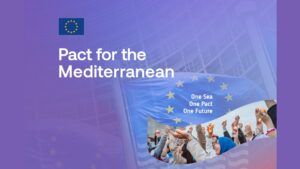What happened to the Permanent Structural Cooperation?
The European Union’s defense policy established in 2017 was created in the midst of political turmoil such as fulfilling the Brexit agreement, the first Trump administration and the ongoing war in Donbas. While the EU continues to be fraught by external economic and political challenges, such as a looming trade war and an actual war on its doorstep, strengthening the European leg of security and defense has never been more pressing for the continent.
The EU as a traditional trading and economic power is developing its own defense policy to protect its internal interests such as the Single Market, freedom of movement of goods, people, services and capital or critical infrastructure. ThePermanent Structured Cooperation (PESCO) created seven years ago was the first step of the EU acting on its own and bringing together member states defense industries. Capabilities and their coordination is what the EU is lacking, where the new cooperation agreement streamlines defense spending, research and innovation for the European defense industry.
One of the main strategic projects for PESCO is military mobility, where TEN-T railway, highway and waterway corridors are developed to military purposes enhancing EU defense readiness including helping NATO forces to deter Russia. Other particularly important projects such as counter-artillery and critical seabed infrastructure protection can ensure that the best answers are given to contemporary threats.
The July 2024 progress report indicates that most projects shall be completed by the beginning of 2030. While 26 projects are planned to deliver results by 2025, many are already delivering results including NATO interoperability. Projects such as Common Hub for Government Imagery or the Cyber and Information Domain Coordination Center ensure that permanent Member States share and develop classified intelligence and react to real-time threats on a permanent basis for deterrence.
The strategic review of PESCO is more relevant than ever and the ambitious results it delivered since its incubation show that intergovernmental cooperation within the area of defense is possible. The next steps – besides development- should be communicating results to experts, academia and the public. 68 projects were put forward creating a unique ecosystem to protect infrastructure and citizens. While the EU’s level of ambition remains high and member states realizing defense needs to become a priority, security should not be taken for granted. Overhauling the European defense architecture is no easy task, however, it requires a constant investment from all players. It is high time the EU learn to become a power player in international relations. This is the only way it can protect the interest of the member states and citizens in the future.
Photo: europa.eu






